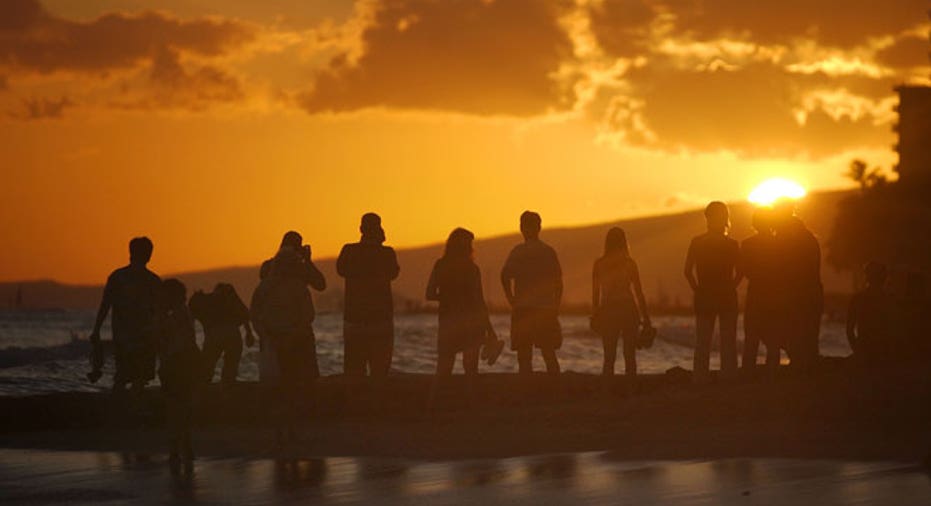How to Avoid Overspending on Your Vacation

It’s great to dream about vacations, to take them and reminisce about them. But it’s not so great having to pay for a vacation. Travel can be a great way to relax, see new things or maybe visit family and friends.
No matter what their motivation, vacationers often feel tempted to overspend. It is important to remember that fun does not have to be expensive. Consider the following items that travelers frequently spend too much on and follow these tips for bringing home memories but not regret.
Common Spending Traps
Travelers often shell out big bucks for accommodations. Another expensive aspect of vacation is the food – eating out for every meal of the trip for each member of your family can add up. Whether you go casual or fancy, eating out is expensive. Similarly, transportation can be costly – by plane, train or even just gas for the car with a road trip.
Indulgences like spa packages, amusement parks and landmark visits are usually pricey because you are likely to be willing to pay for these premiums since you are in the vacation mindset. Souvenirs are the same way – you would probably never want a decorative spoon if you saw it back home, but on vacation it seems appealing. And make sure you don’t forget anything – travelers often spend money replacing items they already own but forgot to bring along for the trip.
Traveling Tips
The best way to vacation without overspending involves making a budget. Decide on the total amount you can use during your travels and allocate it sensibly so you do not overspend. Plotting your every move may be difficult, but the more research you do ahead of time, the better you will be prepared and know when to splurge or when to hold back. Going into debt for a vacation shouldn’t be part of your game plan, but if you do decide to splurge and pay off a purchase later, make sure you understand the credit consequences. Spending more than 30% of your total limit on a credit card can negatively affect your credit scores. You can see how your credit utilization is impacting your credit scores for free on Credit.com.
It’s a good idea to decide on certain trade-offs before you even pack. If you really do want a Swedish massage while you are in Sweden, consider eating at the more affordable restaurants. You might not even notice the difference. For example, that hotel on the golf course may look nice but if you don’t play golf, you’re paying to be near something you won’t use. There are plenty of ways to save – from renting an apartment to looking for hotel deals. Booking in advance can also make a big difference.
You want to look for deals as often as you can – don’t pay full price for something that is available at a discount. It seems simple, but you have to be willing to spend some time searching for the best options for your budget. Also consider bringing some of your own food or staying in accommodations that include a kitchen so you can save on dining out costs by cooking. If you do your homework ahead of time and pre-book the activities that matter most to you, you will be less tempted to make spur-of-the-moment, costly decisions.
You can enjoy all the experience of a great trip within a budget. Doing your research, getting creative and sticking to your plan can ensure you get everything you want and don’t overspend on things you don’t need.
More From Credit.com:
A Simple Checklist to Get Out of DebtHow to Avoid Foreign Currency Credit Card FeesThe Best Travel Rewards Credit Cards in America
AJ Smith is an award-winning journalist with more than a decade of experience in television, radio, newspapers, magazines and online content. She currently serves as the managing editor for SmartAsset. AJ has a passion for meeting new people, sharing stories and helping others. She has degrees from Princeton University and Mississippi State University. AJ and her husband also write and illustrate educational children’s books. More by AJ Smith



















